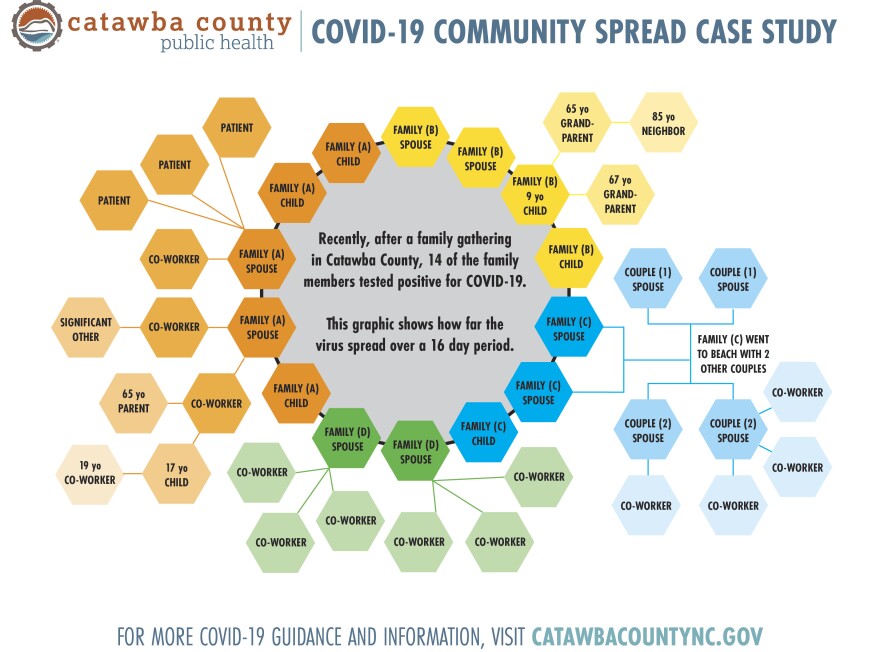Mecklenburg County's health director says she's worried that contact tracing isn't working and that makes it hard to prevent the coronavirus from spreading.

Contact tracing is how public health officials try to identify and isolate anyone who has come in contact with an infectious disease. It has been a key to limiting spread of the coronavirus in Asia and other places. But Mecklenburg County Public Health Director Gibbie Harris said a lot would have to change for it to work here.
"We've been having conversations with both the CDC and the state about whether contact tracing in a pandemic, in our current environment, is as useful as we might need it to be," Harris said in an interview. "Whether we either slow down on the contact tracing or whether we crack down on the enforcement, there's two different ways you could go with that."
Harris said people who test positive for the virus are not answering their phones or not sharing the names and information of those they've come in close contact with. In fact, she said, the number of contacts that people share has declined recently. She did not give any numbers.
North Carolina Health and Human Services Secretary Mandy Cohen said recently the state’s contact tracers are reaching only about one-third to one-half of those they call.
Harris said Meckelnburg County officials are contacting about 800 people a day to inform them they've been exposed. She didn't have an exact number, but said, "We're not getting strict compliance from 800 individuals."
Education Campaigns Needed
Enforcement may not be the answer.
"There's never going to be enough enforcement to make everybody do what they need to do," Harris said.
To Harris, contact tracing can only be effective if we change people's behavior through massive public education campaigns - on the scale of those that have gotten people to quit smoking or wear seatbelts.
"And we know from past history, whether that's around how you eat, exercising, tobacco, alcohol, whatever it happens to be, we know how hard behavior changes. So that's the challenge that we have," Harris said. "And I think ongoing peer pressure and education around those things, that helped."
Meanwhile, even when people do answer the phone, they often brush off the idea of quarantining, Harris said.
"There have been occasions when staff have been yelled at because people are tired of this and don't want to hear the information. The other challenge that we have right now is we're hearing people who say, 'Thank you for the information, but I've got to work," she said.
Catawba Says Take the Call
In Catawba County, Health Director Jennifer McCracken said in a recent interview they're also starting to see resistance to contact tracing calls. On Thursday, the county announced a campaign headlined "Taking the Call."
"If a contact tracer calls you, answer the phone," McCracken said. "It's really important that folks really comply with quarantine measures and also comply with giving public health professionals the information they need. to stop the spread of disease."
In most cases, McCracken said, COVID-19 (the disease caused by the coronavirus) is spreading before somebody even knows that they have it.
"So it's about helping you identify people close to you, who may become sick so they can take appropriate measures to protect their health to prevent further spread of the virus," she said.
Click here for the latest coronavirus news on WFAE’s live blog.
Sign up here for The Frequency, WFAE’s daily email newsletter.
What questions do you have about the coronavirus? What has this experience been like for you? Share your questions below.
_






